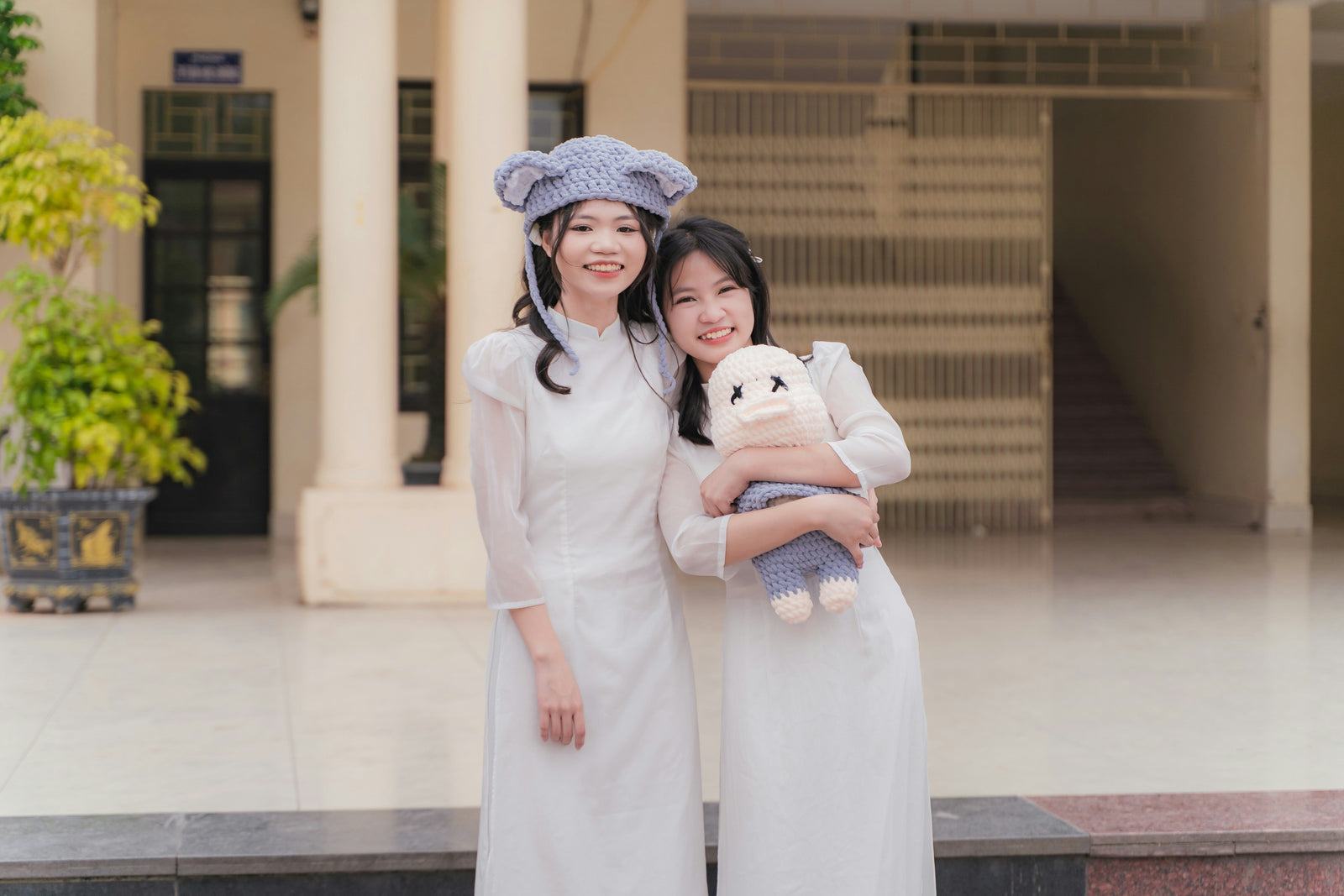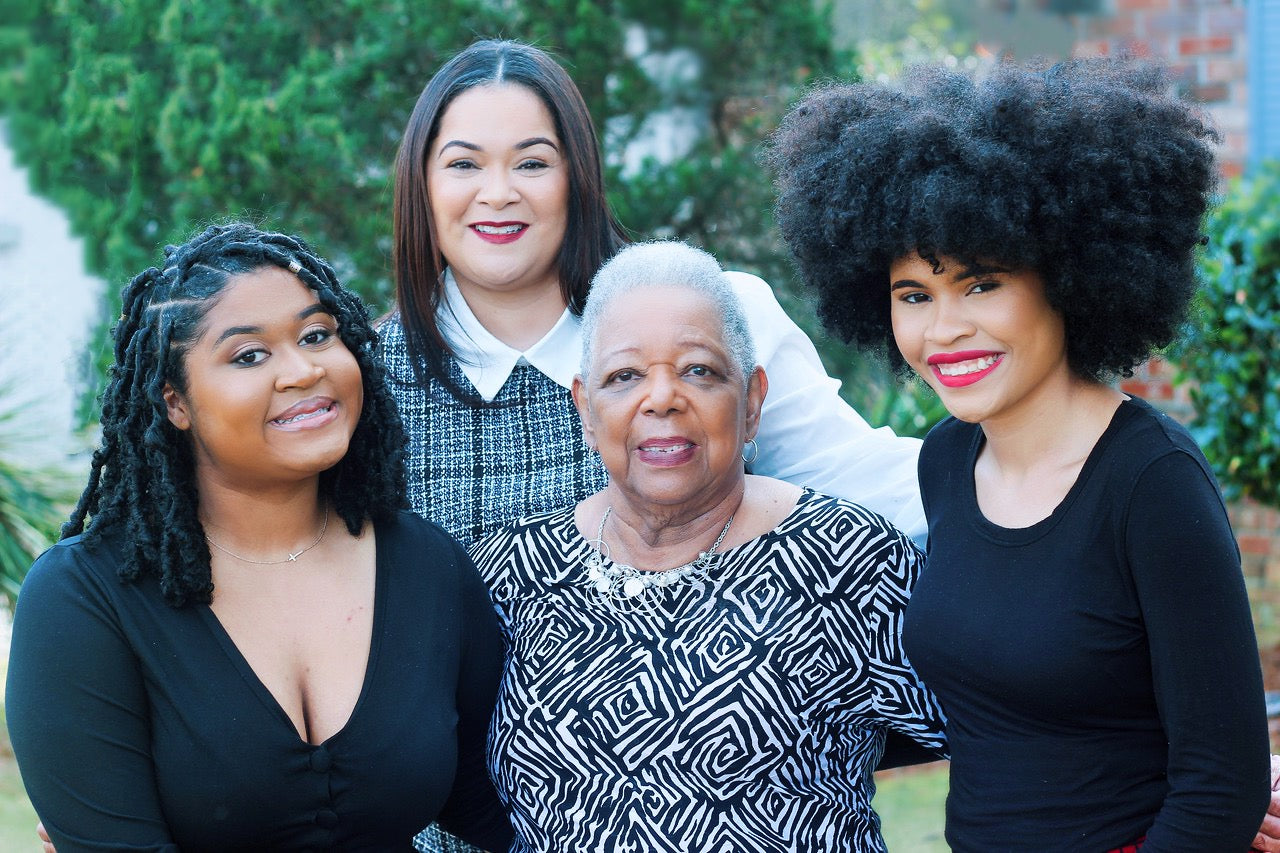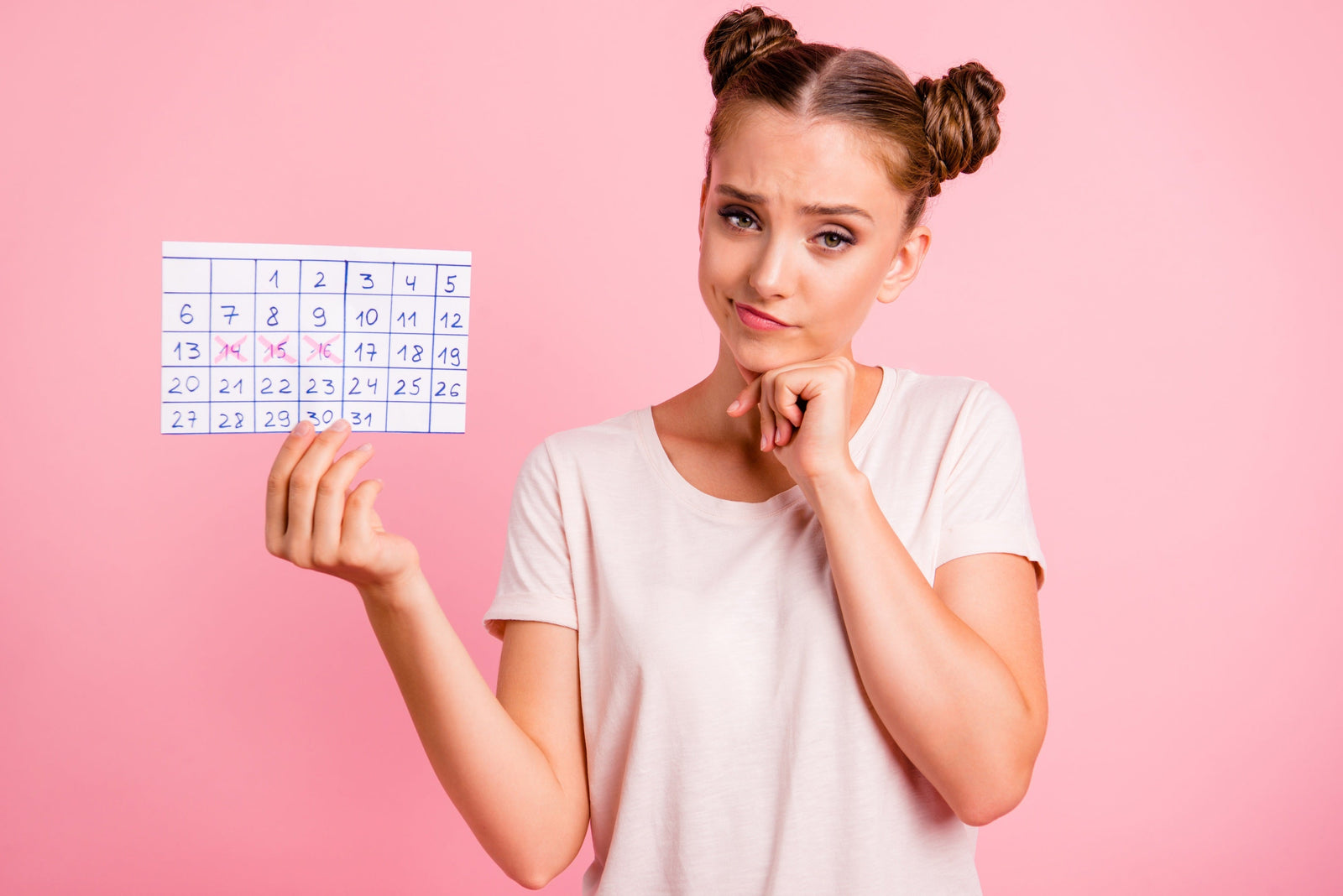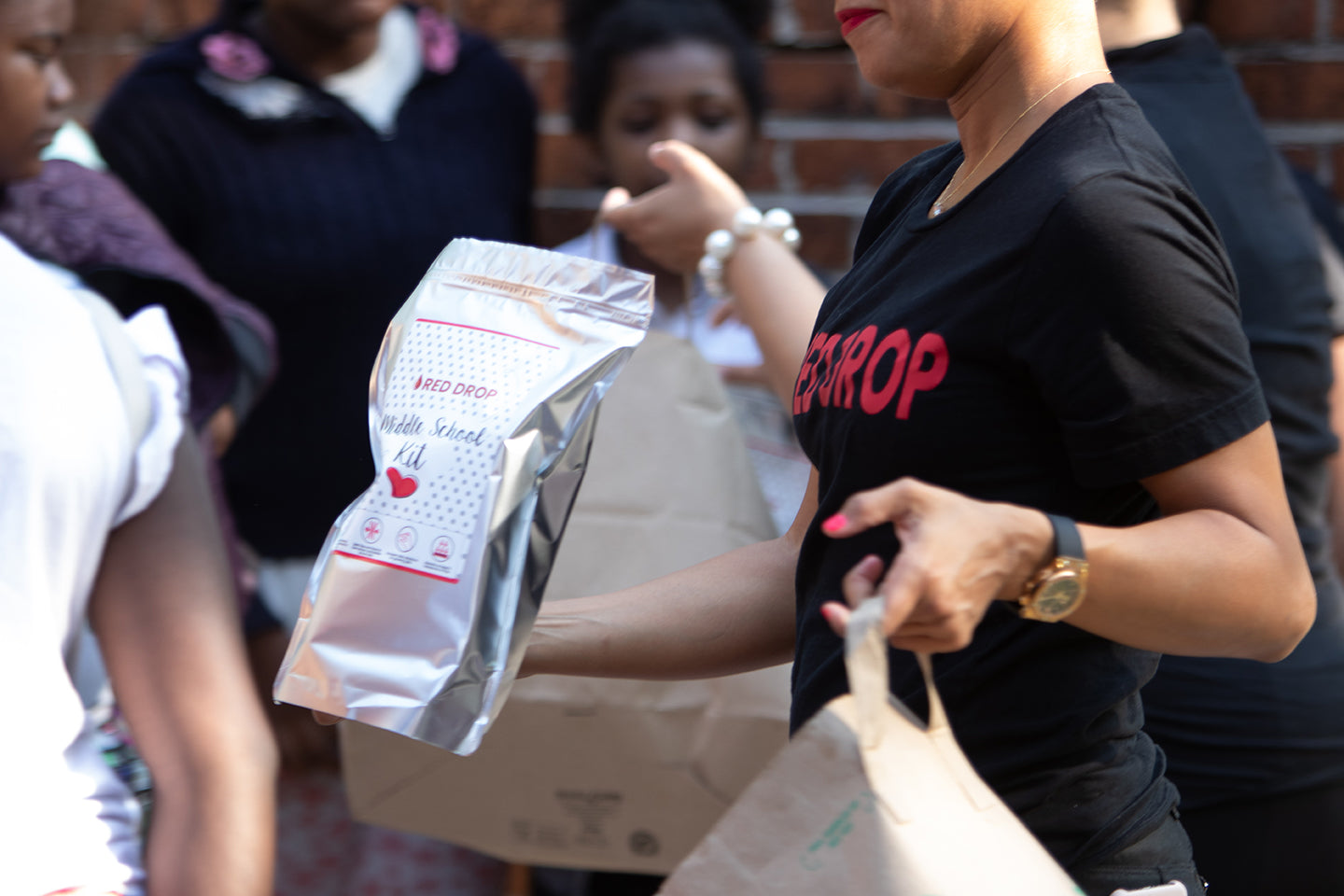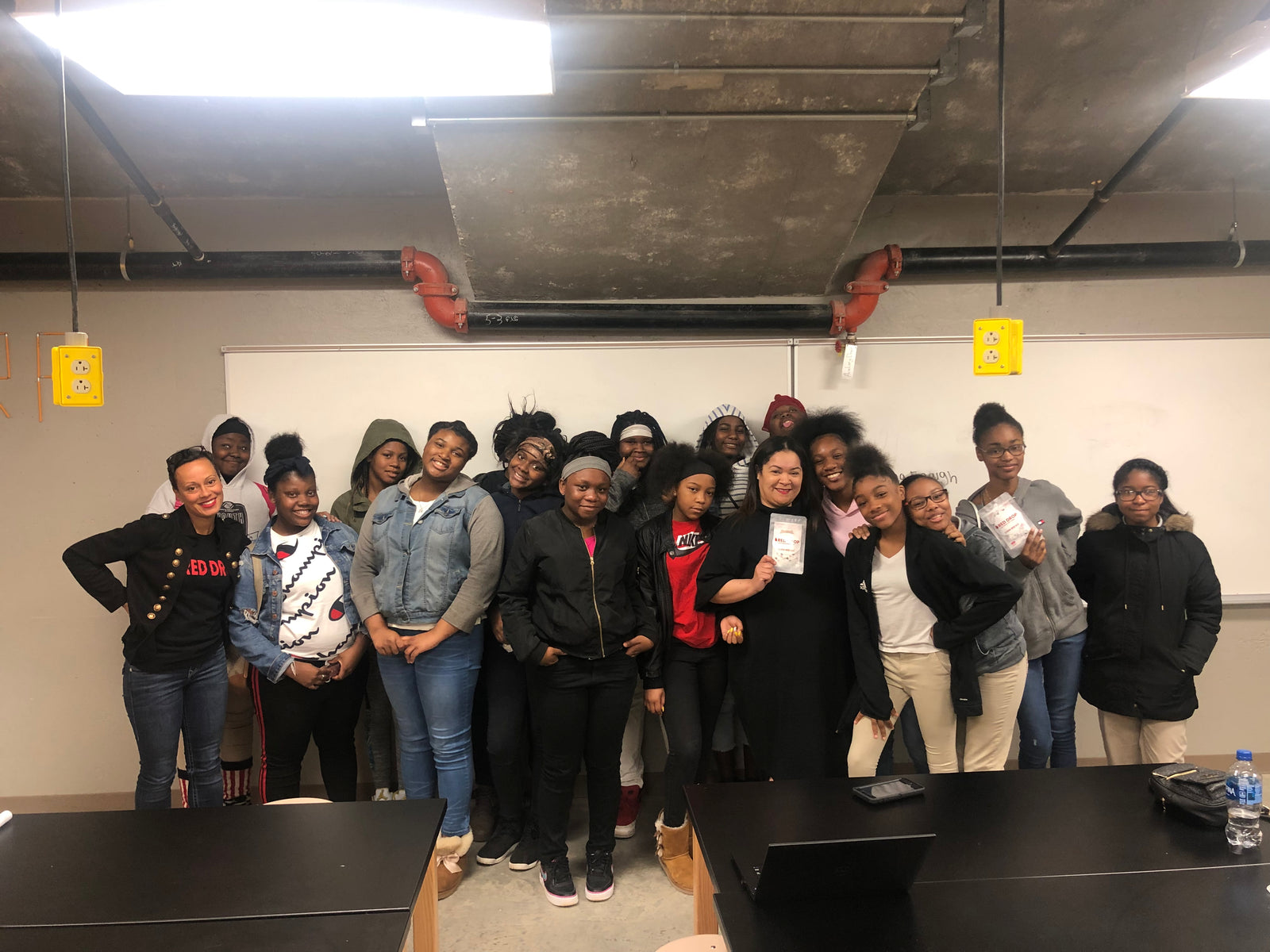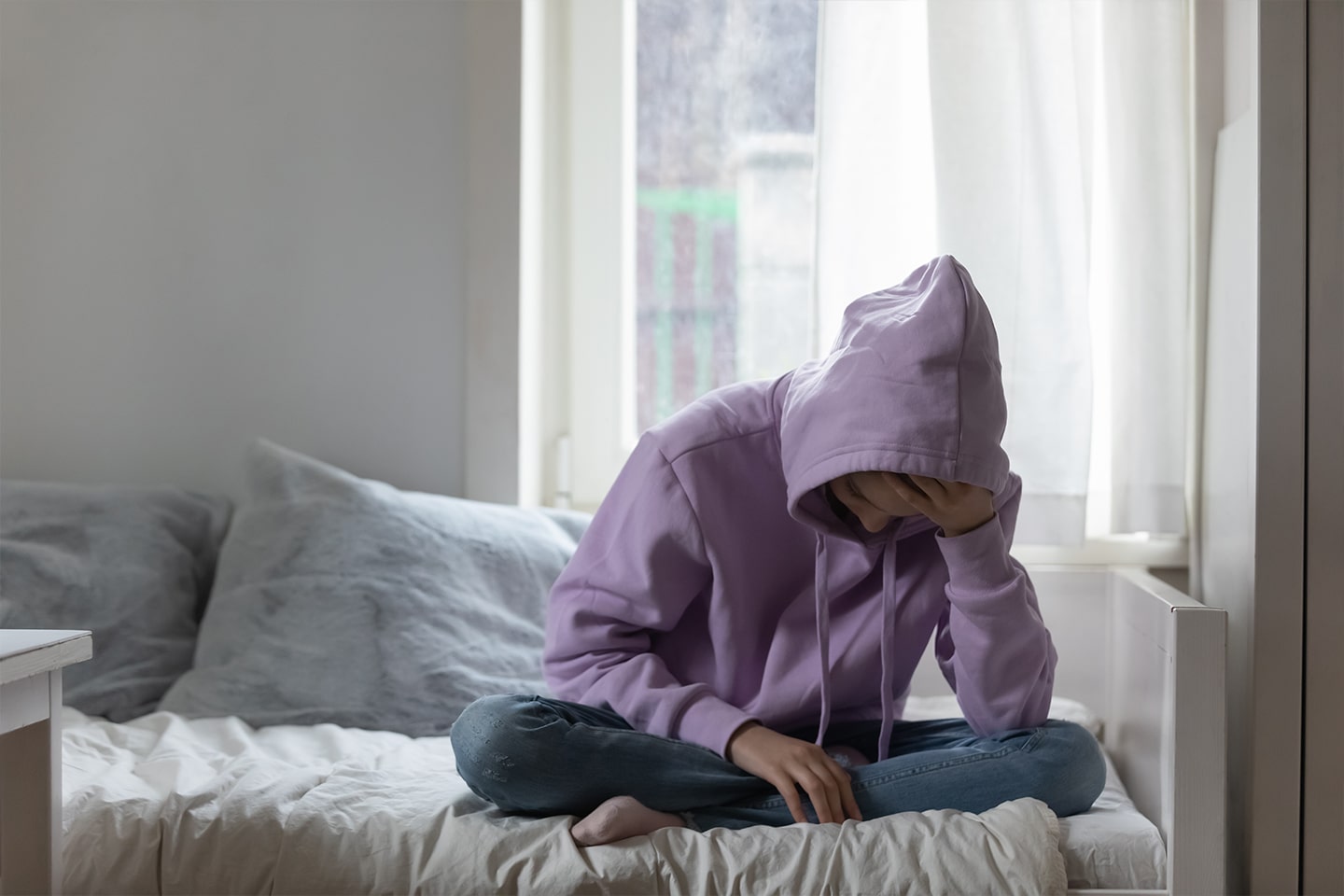Have you ever noticed that some weeks you feel like you can conquer the world, while others you want to stay in bed with a heating pad? Or that sometimes your skin is glowing, and other times it feels like a battlefield? You’re not imagining it, and you’re definitely not broken. You’re experiencing the natural rhythm of your menstrual cycle, and once you understand it, you can work WITH your body instead of fighting against it.
I wish someone had taught me about cycle syncing when I was in high school. Instead of feeling frustrated by my changing energy and moods, I could have learned to honor what my body was telling me. At RedDrop, we believe that understanding your cycle is one of the most empowering tools you can have as a young woman.
What Is Cycle Syncing?
Cycle syncing is aligning your lifestyle, activities, and self-care with the four phases of your menstrual cycle. Instead of maintaining the same energy and productivity every day (which is impossible for anyone with a cycle), you learn to flow with your natural hormonal changes.
Think of it like this: you wouldn’t expect a flower to bloom the same way every season. Your body has its own seasons, too, and each one has its own gifts and challenges.
The Four Phases of Your Cycle
Understanding these phases is like having a roadmap for your own body. Each phase brings different hormonal changes that affect everything from your energy levels to your skin to how social you feel.
Menstrual Phase (Days 1-5): Your Inner Winter
This is when your period actually happens. Hormone levels are at their lowest, which often means lower energy and a natural desire to rest and reflect. Your body is literally shedding and renewing itself. This isn’t the time to push yourself to be super social or take on massive projects.
Follicular Phase (Days 1-13): Your Inner Spring
This phase overlaps with menstruation but continues after your period ends. Your body starts producing more estrogen, which gradually increases your energy and mood. You might start feeling more optimistic and ready to try new things. Your skin often starts looking clearer and brighter.
Ovulation Phase (Days 14-16): Your Inner Summer
This is when you typically feel your best! Estrogen peaks right before ovulation, giving you higher energy, better mood, and often that natural “glow” people talk about. You might feel more confident, social, and ready to take on challenges. Many people feel most attractive during this phase.
Luteal Phase (Days 17-28): Your Inner Fall
After ovulation, progesterone rises and estrogen drops. This is often when PMS symptoms appear. You might feel more introspective, need more comfort, and have less patience for drama. Your skin might break out, and you might crave certain foods. This phase gets a bad reputation, but it’s actually when you can be most productive with focused, detail-oriented work.
Why This Matters for Teens
Your cycle is still establishing itself during your teen years, which means it might be irregular or feel more intense than it will when you’re older. Understanding cycle syncing can help you:
Stop Fighting Your Natural Rhythms
Instead of wondering why you feel different from week to week, you can start recognizing patterns and planning accordingly.
Improve Your Self-Care
Different phases of your cycle need different types of care. What feels good during ovulation might not be what you need during your period.
Reduce Anxiety About Changes
When you understand that mood and energy fluctuations are normal and cyclical, they become less scary and more manageable.
Make Better Decisions
Knowing where you are in your cycle can help you decide when to schedule important events, have difficult conversations, or try new things.
Develop Body Wisdom
Learning to listen to your body’s signals now will serve you throughout your entire life.
Simple Ways to Start Cycle Syncing
You don’t need to completely overhaul your life to benefit from cycle syncing. Start with small awareness practices:
Track Your Cycle
Use a simple calendar or app to note the first day of your period. After a few months, you’ll start to see patterns in how you feel during different phases.
Notice Your Energy Patterns
Pay attention to when you feel more social versus when you prefer quiet time. When do you have the most physical energy? When do you feel most creative?
Adjust Your Expectations
If you’re in your luteal phase and feeling more tired, don’t push yourself to maintain the same social schedule you had during ovulation. It’s not laziness—it’s wisdom.
Modify Your Self-Care
During your period, you might need more rest and comfort foods. During ovulation, you might enjoy more active social activities. Both are valid and necessary.
Be Gentle With Yourself
Remember that your cycle is still developing. Some months might feel very different from others, and that’s completely normal.
What Cycle Syncing Is NOT
Cycle syncing isn’t about using your period as an excuse to avoid responsibilities or being dramatic about normal hormonal changes. It’s also not about letting your cycle control your entire life or making major decisions based solely on what phase you’re in.
Instead, it’s about developing a healthy relationship with your body’s natural rhythms and learning to work with them rather than against them.
Looking Ahead
Understanding your cycle is just the beginning. In our next blog post, we’ll dive into practical applications: how to sync your study schedule, social activities, and self-care routines with your cycle phases. We’ll also share specific tips for managing each phase in ways that support your goals as a student and young person.
Your cycle isn’t something that happens TO you—it’s something that happens FOR you. When you learn to work with your natural rhythms instead of fighting them, you’ll discover a new level of self-awareness and self-care that will benefit you for life.
At RedDrop, we believe that knowledge is power, and understanding your cycle is one of the most empowering things you can learn as a young woman. Your body has its own wisdom—it’s time to start listening.
Image Photo by Tri Vo on Unsplash
Sterling P. Jones is a wellness writer and beauty expert who believes in empowering women through education. As the founder of The Beauté Study, she teaches women how beauty and wellness practices can be tools of personal power. Sterling specializes in cycle-conscious living and writes about the intersection of beauty, wellness, and feminine health. Her approach to period education combines cultural insight with practical guidance, helping young women understand their bodies as sources of strength rather than shame.

